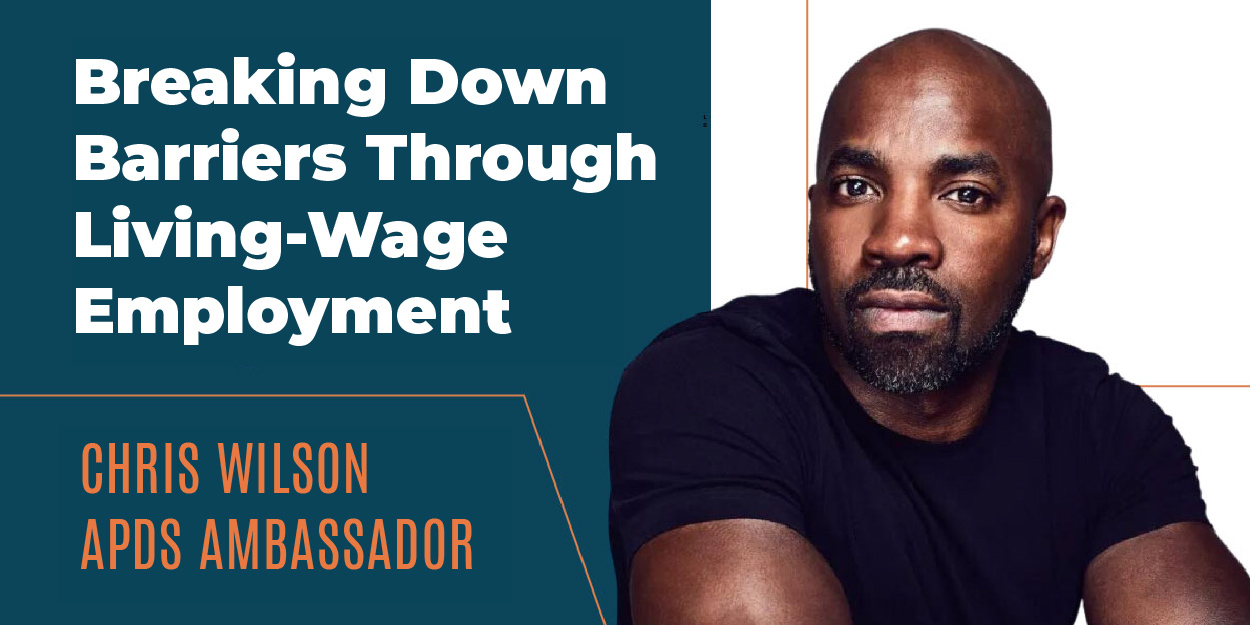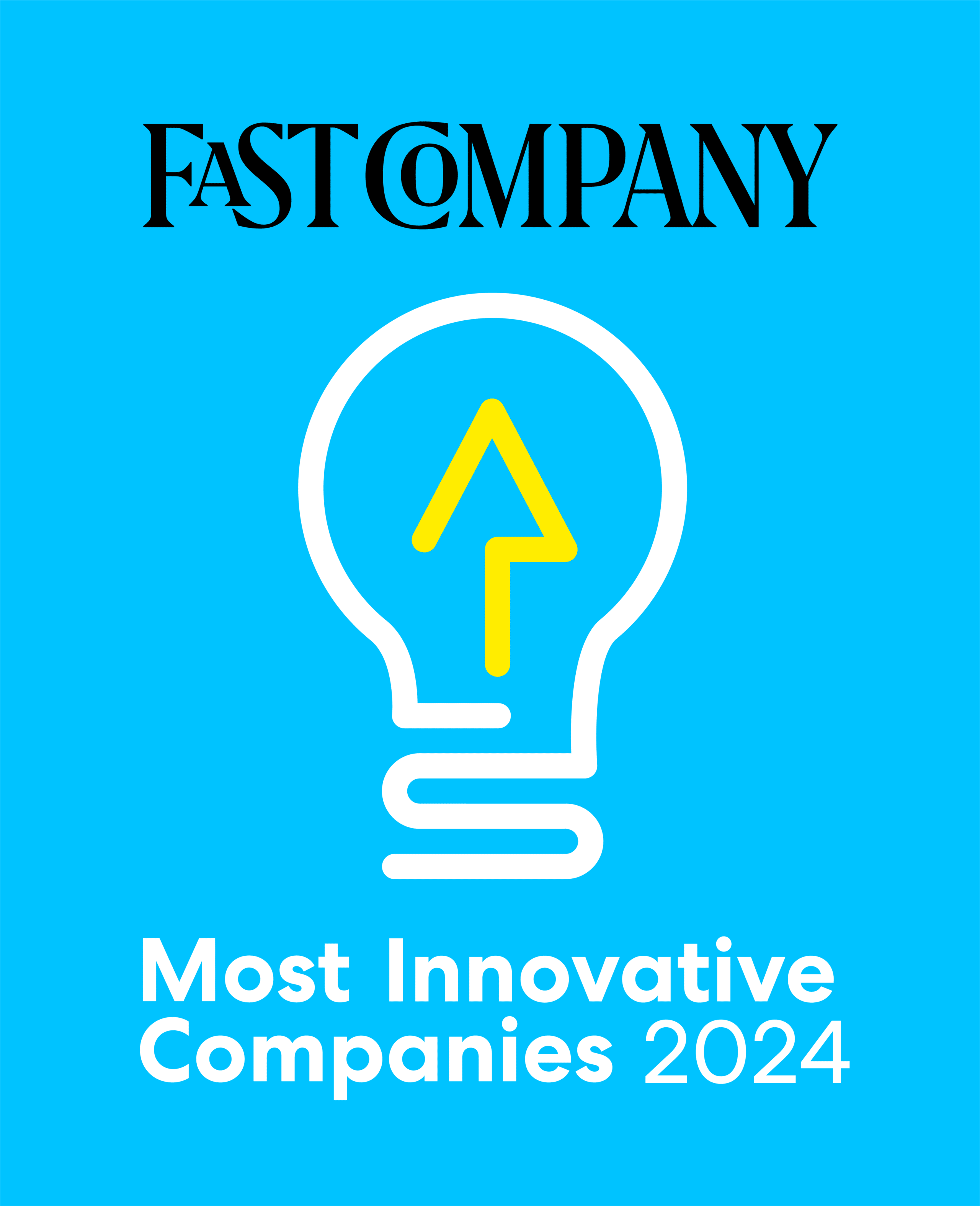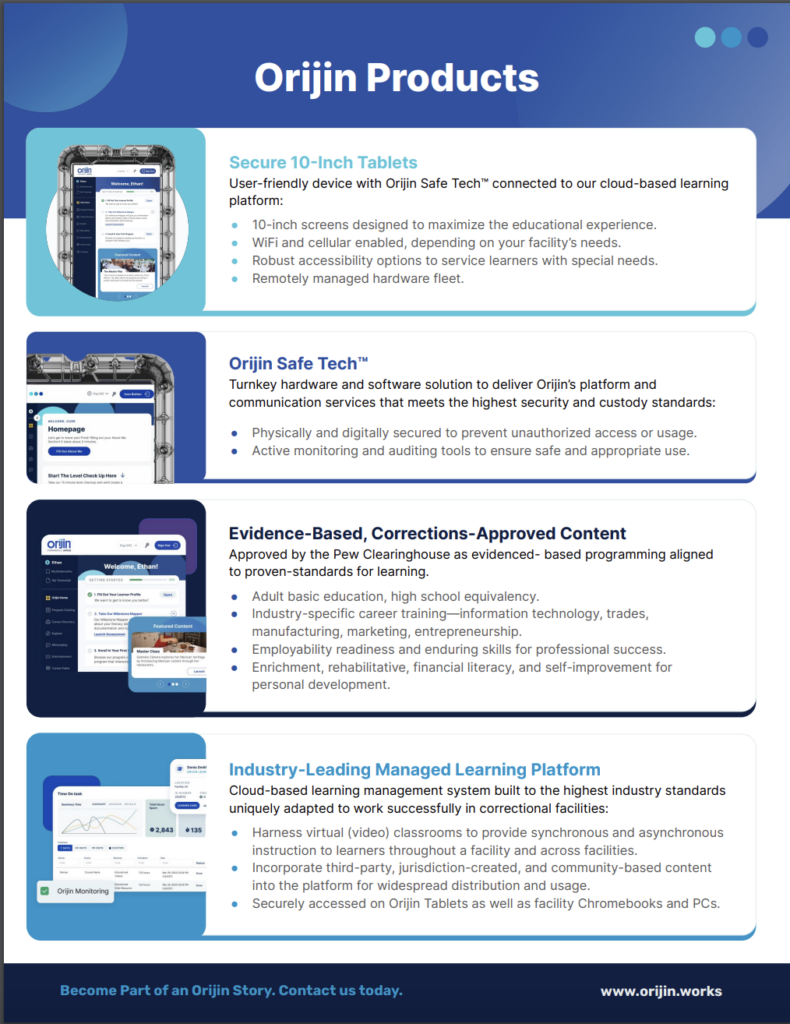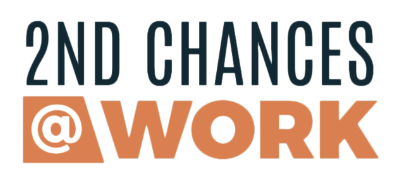
Article by APDS Ambassador
Chris Wilson
Serial Social Entrepreneur, Storyteller, Artist, Social Justice Advocate, Author
Reintegrating into society after incarceration poses a formidable challenge for many individuals. Among the numerous obstacles they encounter, securing stable employment stands out as one of the most crucial, in an environment and around people that support healthy habits. It helps them rebuild their lives and plays a significant role in reducing recidivism rates and fostering a safer and more inclusive community.
I was released from prison after serving 16 years on a Life sentence and I found myself facing new challenges. There was an unrealistic expectation of me to find a job immediately, find a place to stay and check in with my probation officer twice a week. This is a very common scenario for returning citizens. Fortunately, I was prepared to meet these challenges.
Early in my incarceration, I decided that I wanted to turn my life around. I knew deep down inside I was a good person and wanted to prove it. I wanted to prove it myself and to my family. I began to imagine a new future for myself. I started to view my prison sentence as an opportunity to mold myself into a new person. I imagined myself being released one day and becoming a successful entrepreneur that helped people in the community. So I decided to create a master plan utilizing every educational and therapeutic opportunity available to me inside of the prison I was in. My mentor told me “The knowledge you put in your head could never be taken away from you.” I committed to my plan for over a decade.
Ten years into my incarceration I had accomplished a lot. I earned a high school diploma, and a college degree in sociology, read hundreds of books, took vocational trades, became a mentor and taught myself to read, write and speak in several foreign languages. Because of my accomplishments, good behavior and remorse for my crime, I was given a second chance to live my life and was released from prison.
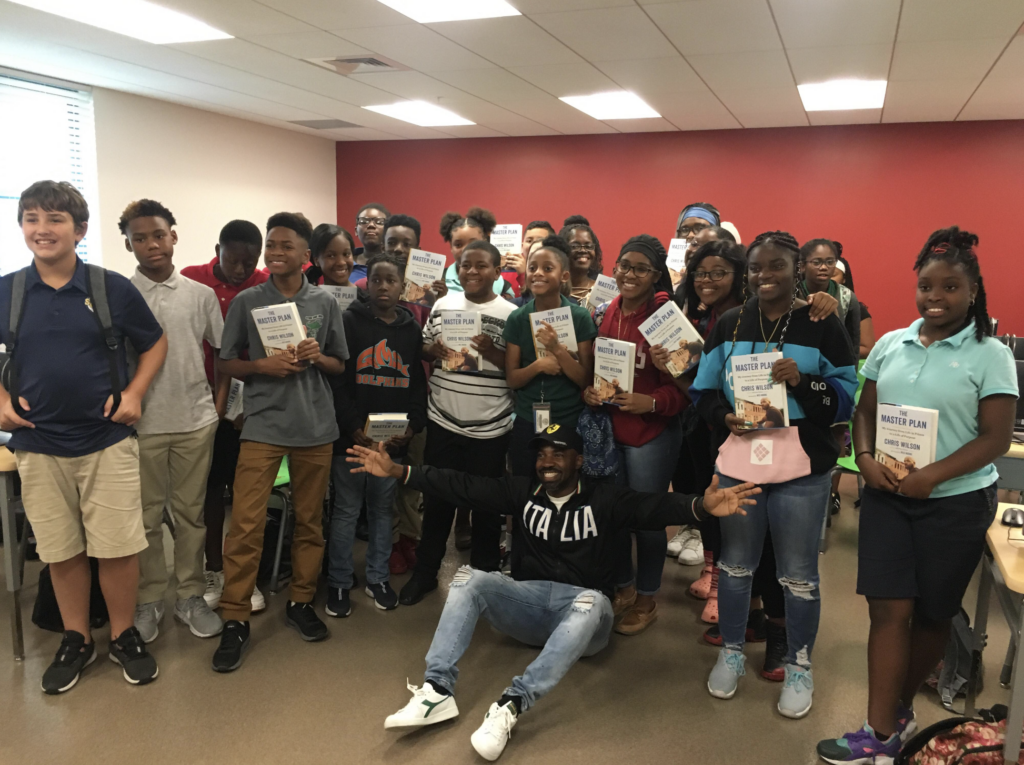
Today, I have been out in society for 11 years. I have continued to pursue post-secondary educational opportunities, I’ve founded several companies that have helped hundreds of people gain employment in Baltimore City. I’ve become a successful visual artist and advocate for prison education and career readiness strategies that help people impacted by our criminal justice system. The bottom line is that education, therapy and having a plan changed my mindset. It gave me a second chance to live my life. I am now obligated to champion the powers of knowledge.
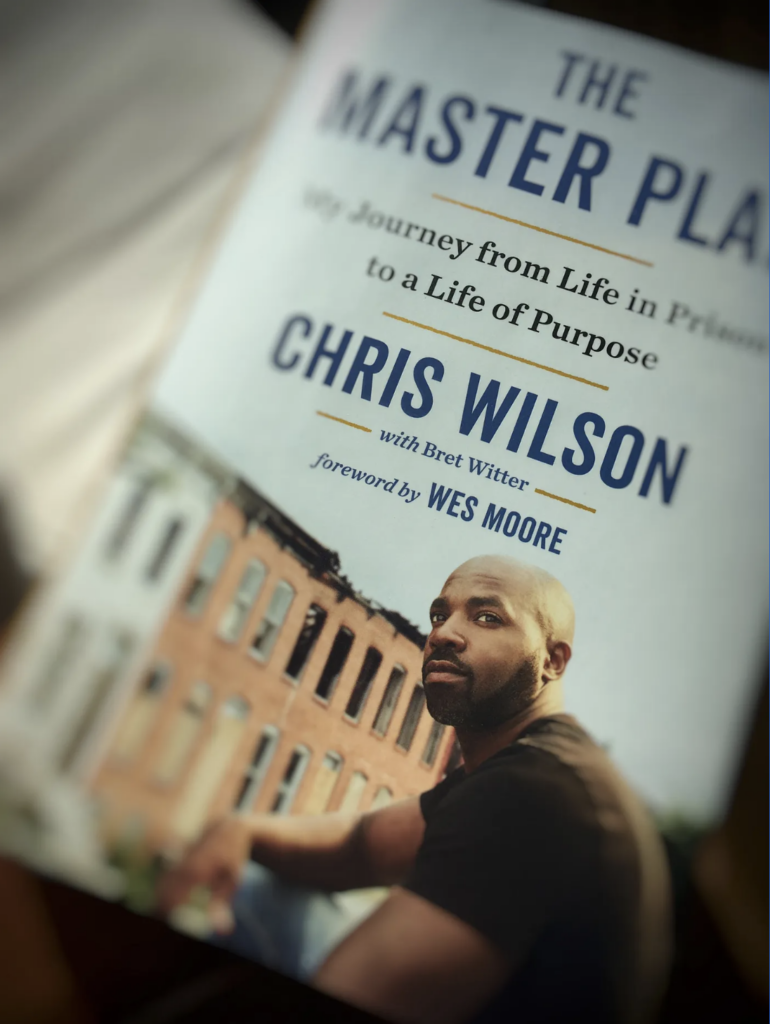
Unfortunately, society tends to stigmatize individuals with criminal records, making it extremely difficult for them to find work. Overcoming this challenge requires us to challenge biases and stereotypes and acknowledge that people can change and deserve a second chance. Promoting empathy and understanding, we can create a more inclusive environment that prioritizes rehabilitation over punishment. Often more importantly, being committed and diligent about your own plan is the key. This is one of the steps in The Master Plan, the book and course available on APDS platforms in 18 states and over 200 facilities in the US.
Offering opportunities for formerly incarcerated individuals through employment and education is vital to their successful reintegration into society. Research shows that only 16% of individuals are likely to recidivate when employed. To achieve this, we must dismantle stigmas, advocate for fair policies, provide education and skill development programs, collaborate with nonprofits, and implement inclusive hiring practices. By taking these measures, we can build a society that values redemption, lowers recidivism rates, and ensures a more equitable future.
Everyone deserves a second chance and by working together, we can break down barriers and create a brighter future for all. Join us in this vital work; together we can create a more just and equitable society.
Unite with APDS to create opportunities for Justice-Impacted and 2nd Chance Living Wage Employers.
Chris Wilson is also the founder of the Chris Wilson Foundation, which supports social entrepreneurs and prison education, including re-entry and financial literacy for returning citizens, as well as art-related programs.

